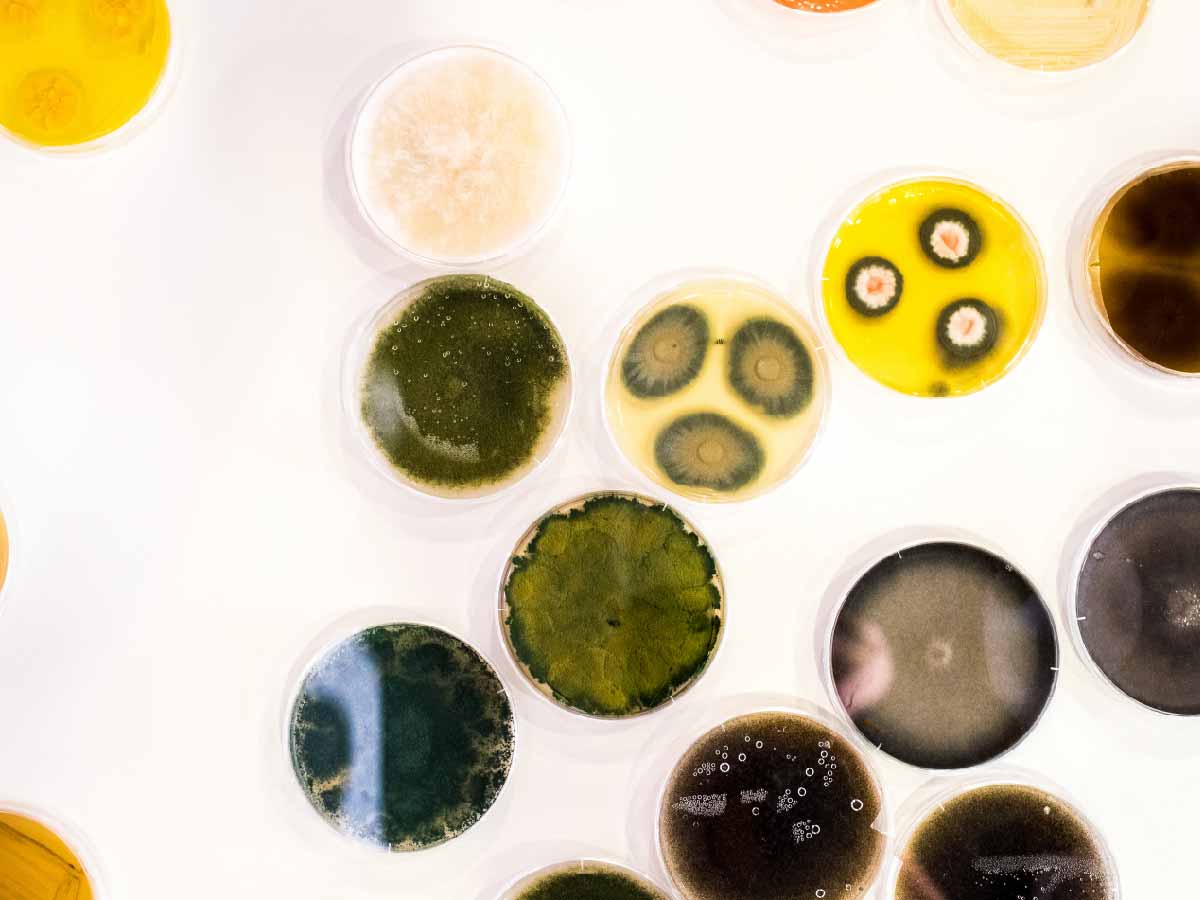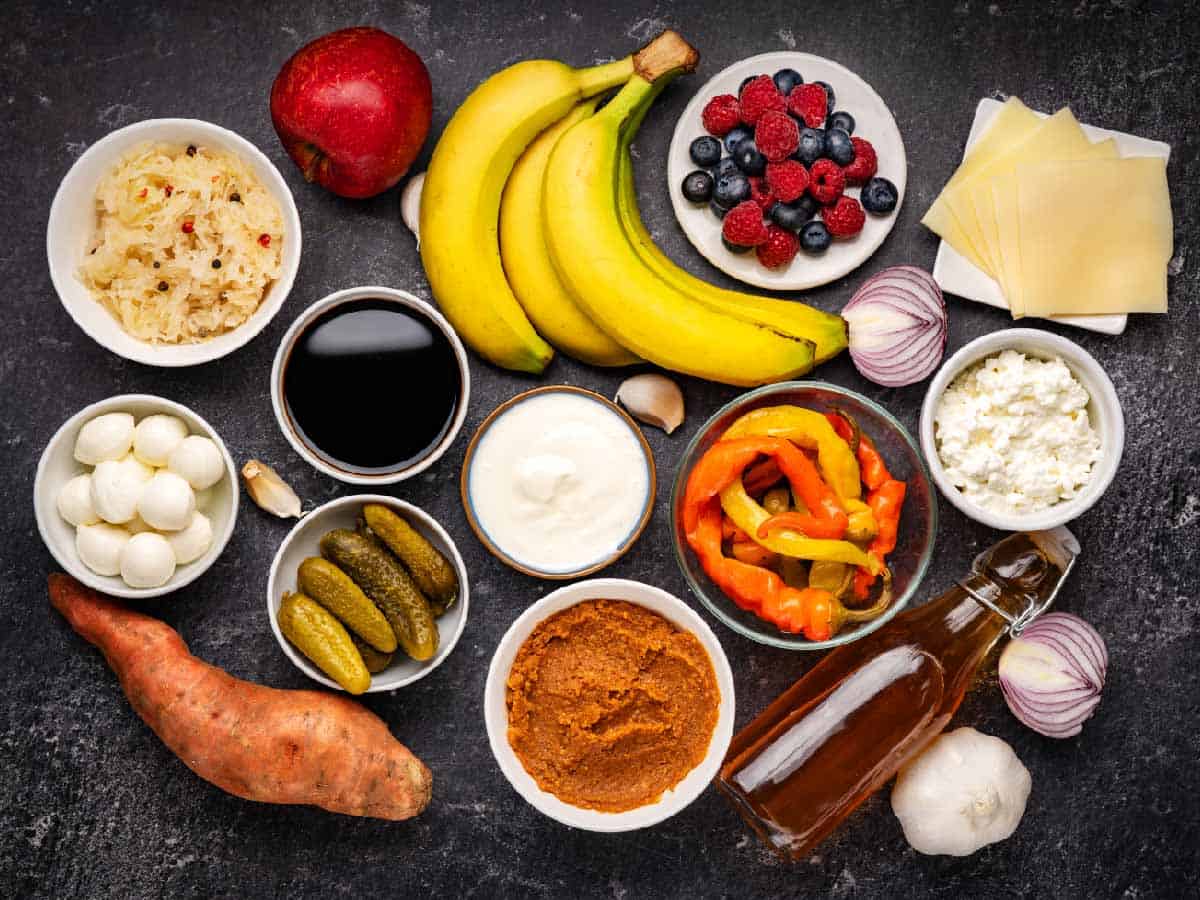Digestive discomfort can be a significant issue for many, with symptoms that can disrupt daily life. Although there are various contributing factors, one aspect that is often not given enough attention is the role of certain dietary components. These can lead to various digestive problems, impacting overall well-being. Recent trends have shown a growing interest in natural solutions that support digestive health. In this article, we will look into a popular natural solution — probiotics to deal with the bloating that occurs from food intolerances.
Understanding Food Intolerances and Their Link to Bloating

More and more people are developing food intolerances, often suffering from digestive problems and bloating. This happens when the body struggles to digest specific foods, causing symptoms like increased gas, stomach bloating, and discomfort.
Stomach bloating can often be attributed to issues like lactose intolerance, inflammatory bowel disease, consumption of artificial sweeteners, and excessive gas production. Recognizing how food intolerances lead to bloating is important for managing and minimizing these incidents, enabling people to pinpoint and avoid their trigger foods and adapt their diet accordingly.
Connection Between Food Intolerances and Bloating
Bloating and food intolerance share a significant connection, primarily due to the way our bodies react to certain foods. When someone has a food intolerance, it means their digestive system struggles to properly process specific foods. This difficulty in digestion can lead to various symptoms, with bloating being one of the most common.
- Inability to Digest Specific Components
Many food intolerances arise from the body's inability to break down certain components in food. For example, lactose intolerance is caused by a deficiency of lactase, the enzyme needed to digest lactose, a sugar found in milk and dairy products. When such foods are consumed, they are not properly digested, leading to fermentation in the gut, which produces gas and causes bloating.
- Fermentation and Gas Production
Undigested food in the digestive tract, especially in the large intestine, becomes a target for fermentation by gut bacteria. This fermentation process produces gases such as hydrogen, methane, and carbon dioxide, which can cause the abdomen to swell, leading to the feeling of bloating.
- Altered Gut Motility
Food intolerances can affect the movement of the digestive tract (gut motility). Some foods may speed up or slow down this movement, leading to symptoms like cramping and bloating. For instance, in conditions like IBS, certain foods can trigger an exaggerated response in gut motility, leading to bloating.
- Gut Microbiome Imbalance
The balance of good and bad bacteria in the gut can be affected by food intolerances. Consuming foods that one is intolerant to can lead to an imbalance, known as dysbiosis. This imbalance can cause digestive discomfort and increased gas production, contributing to bloating.
- Inflammatory Responses
Some food intolerances can trigger mild inflammatory responses in the gut. This inflammation can lead to an increased accumulation of fluids and gases in the intestines, exacerbating the feeling of bloating and discomfort.
- Delayed Digestive Process
In some cases, food intolerances can slow down the digestive process, resulting in food staying longer in the stomach and intestines. This delay can cause a buildup of gas, leading to bloating.
Role of Probiotics in Digestive Health
Probiotics, which are beneficial bacteria found in our digestive system, are important for maintaining digestive health. When we consume these live microorganisms in sufficient quantities, they offer a range of benefits for our digestive system.
The primary function of probiotics is to sustain a balanced bacterial environment in the gut. This balance is vital for gut health and ensures the digestive system operates efficiently. Probiotics aid in enhancing the population of good bacteria in the gut. This, in turn, fosters a healthy gut ecosystem, important for effective digestion and minimizing bloating issues.
How Probiotics Work in the Digestive System
 Probiotics, beneficial strains of bacteria like Lactobacillus and Bifidobacterium, interact with the gut microbiome. The gut microbiome is a vast ecosystem of microorganisms in the digestive system whose function is to support digestive health. It is home to trillions of bacteria including health-promoting varieties, which is critical for maintaining a healthy gut. When introduced into the gut, probiotics aid in rebalancing the good bacteria, thus enhancing gut health.
Probiotics, beneficial strains of bacteria like Lactobacillus and Bifidobacterium, interact with the gut microbiome. The gut microbiome is a vast ecosystem of microorganisms in the digestive system whose function is to support digestive health. It is home to trillions of bacteria including health-promoting varieties, which is critical for maintaining a healthy gut. When introduced into the gut, probiotics aid in rebalancing the good bacteria, thus enhancing gut health.
These probiotics establish themselves in the digestive tract, attaching to the intestinal walls and competing with harmful bacteria for nutrients and space. This competition helps to keep a healthy balance of beneficial bacteria, which is vital for preventing the dominance of harmful bacteria. A proper balance is key to avoiding digestive problems, such as bloating.
Particularly in the small intestine, which naturally hosts fewer bacteria than the large intestine, specific probiotic strains can be highly beneficial. They populate this area, fostering a healthier gut environment and lessening symptoms of bloating. By improving the balance of gut microbiota in the small intestine, probiotics aid in better digestion and gas management, thus helping to reduce bloating discomfort.
Benefits of Probiotics for Overall Digestive Health
Probiotics play a vital role in enhancing digestive health, which in turn can help mitigate bloating symptoms.
- Enhances Digestive Health: Probiotics are important in boosting digestive health, which can lead to reduced bloating symptoms.
- Bolsters Immune System: These beneficial bacteria strengthen the immune system, a key component in maintaining gut health.
- Prevents Digestive Disorders: A healthy immune system, supported by probiotics, helps prevent issues like bacterial overgrowth and various digestive disorders.
- Improves Gut Health: Regular intake of probiotics enhances overall gut health.
- Aids in Nutrient Absorption: Beneficial bacteria in the gut facilitate effective nutrient absorption.
- Regulates Bowel Movements: Probiotics ensure regular bowel movements.
- Reduces Gas Production: Less gas production, aided by probiotics, helps in alleviating bloating.
- Efficient Food Breakdown: Probiotics improve the breakdown of food, reducing the likelihood of bloating and discomfort.
- Balances Gut Bacteria: Including probiotics in the diet positively impacts the balance of bacteria in the digestive system, especially in controlling bacterial overgrowth associated with bloating.
- Restores Gut Equilibrium: Probiotics restore balance in the gut microbiota and limit harmful bacterial growth.
- Enhances Digestive Processes: This restoration by probiotics leads to improved digestion and lower gas production.
- Natural Approach to Digestive Health: Probiotics offer a comprehensive, natural method for improving digestive health by addressing the root causes of bloating.
Specific Probiotic Strains Beneficial for Bloating
Certain probiotic strains, notably Lactobacillus plantarum and Bifidobacterium lactis, have been found effective in alleviating bloating symptoms. Lactobacillus plantarum, extensively researched in the context of irritable bowel syndrome (IBS), has demonstrated efficacy in reducing abdominal bloating, gas, and pain. Its beneficial effects are attributed to improved gut motility, reduced gas production, and fostering a healthy gut environment.
Bifidobacterium lactis, particularly beneficial for people with functional constipation, assists in regularizing bowel movements and reducing gas production, thereby mitigating bloating symptoms. This strain's effectiveness highlights the targeted relief probiotic bacteria can offer for bloating.
It's important to recognize that different probiotic strains vary in their effectiveness against bloating, and their optimal dosage and duration can differ based on individual needs and specific digestive conditions.
Practical Tips: Incorporating Probiotics into Your Diet
 Incorporating probiotics into your diet, through either supplements or probiotic-rich foods, can effectively support gut health and may help reduce bloating. When adding probiotics to your diet, there are several practical tips to keep in mind.
Incorporating probiotics into your diet, through either supplements or probiotic-rich foods, can effectively support gut health and may help reduce bloating. When adding probiotics to your diet, there are several practical tips to keep in mind.
Choosing a Probiotic Supplement for Bloating
When choosing a probiotic supplement to alleviate bloating, focus on those containing strains proven to reduce bloating. Opt for third-party tested products for assured quality and effectiveness. Select supplements with a diverse range of beneficial bacteria, specifically targeting gut health and bloating to address your particular digestive needs.
Dietary Sources of Probiotics
To diversify your gut microbiome, consider adding fermented foods to your diet, such as kimchi, miso, tempeh, and kombucha. These probiotic-rich foods, along with others like sauerkraut, pickles, buttermilk, and sourdough bread, can promote the growth of healthy bacteria in your gut. Experimenting with a variety of these foods can significantly benefit your overall gut health.
Other Lifestyle Adjustments to Assist Probiotics
Enhancing gut health involves not just probiotics but also key lifestyle changes. Managing stress is essential, as it often worsens symptoms of irritable bowel syndrome (IBS). Regular exercise helps regulate weight and supports gut health. Avoiding fizzy drinks and dairy products is particularly beneficial for those with food intolerances or celiac disease. Mindful eating practices, such as eating smaller meals and using digestive enzymes, can also improve digestion.
Importance of a Balanced Diet
To bolster the probiotic bacteria in your digestive system, focus on a varied and nutritious diet. Include fruits, vegetables, whole grains, lean proteins, and dietary fiber from legumes, nuts, and seeds, all of which support gut health. Additionally, eating prebiotic-rich foods like garlic and onions helps nourish beneficial gut bacteria. Opt for whole, unprocessed foods, as they supply the necessary nutrients for probiotic bacteria to flourish.
Exercise and its Role in Reducing Bloating
 Regular physical activity, including moderate exercises like walking, yoga, or swimming, plays a key role in enhancing gut motility and overall digestive health. Such activities not only help in managing bloating symptoms but also in fostering healthy gut bacteria.
Regular physical activity, including moderate exercises like walking, yoga, or swimming, plays a key role in enhancing gut motility and overall digestive health. Such activities not only help in managing bloating symptoms but also in fostering healthy gut bacteria.
This is particularly beneficial for people with conditions like irritable bowel syndrome, inflammatory bowel disease, or other functional bowel disorders. Moreover, regular exercise can prevent weight gain and maintain a balance of healthy gut bacteria, which is important for those with health issues linked to digestive health.
Frequently Asked Questions:
What are probiotics?
Probiotics are live microorganisms, often referred to as "good" or "beneficial" bacteria, that are thought to support gut health. They are found in various foods like yogurt and fermented products or as dietary supplements.
How do probiotics help with bloating?
Probiotics can help balance the gut microbiota, the community of bacteria in your digestive system. This balance can improve digestion, reduce gas production, and alleviate bloating. They also aid in breaking down food more efficiently, which can reduce digestive discomfort.
Can taking probiotics cause bloating initially?
Yes, when you first start taking probiotics, you might experience mild bloating as your body adjusts to the changes in gut bacteria. This is usually temporary and should subside as your gut microbiota stabilizes.
How long does it take for probiotics to reduce bloating?
The time it takes for probiotics to reduce bloating varies from person to person. Some may notice improvements within a few days, while others might take several weeks. Consistent use is key to achieving the best results.
Are all probiotics the same in terms of reducing bloating?
No, different probiotics contain different strains and species of bacteria. Some strains may be more effective for bloating than others. It's important to choose a probiotic supplement that is tailored to your specific digestive needs.
Conclusion
Probiotics have shown promising results in alleviating bloating caused by food intolerances. By promoting a healthy gut microbiome, probiotics can help improve digestion and reduce bloating symptoms. It is important to choose the right probiotic strains that target specific intolerances such as lactose or gluten intolerance.
Additionally, incorporating probiotic-rich foods into your diet and making lifestyle adjustments like maintaining a balanced diet and regular exercise can further support the effectiveness of probiotics.
If you're tired of dealing with bloating and want to explore probiotics as a solution, consider incorporating them into your daily routine and see if they can provide the relief you've been seeking. You also need to simultaneously avoid the foods that you are intolerant to. You can identify these foods using Advance Food Intolerance Labs (AFIL) at-home food intolerance test kits.
Watch AFIL test kits testimonial videos click here
References:
- Ohtsuka, Yoshikazu. "Food intolerance and mucosal inflammation." Pediatrics International 57.1 (2015): 22-29.
- Castellazzi, Anna Maria, et al. "Probiotics and food allergy." Italian Journal of Pediatrics 39.1 (2013): 1-10.
- Oak, Sophia J., and Rajesh Jha. "The effects of probiotics in lactose intolerance: A systematic review." Critical reviews in food science and nutrition 59.11 (2019): 1675-1683.
- Vanderhoof, Jon A., and Rosemary J. Young. "Role of probiotics in the management of patients with food allergy." Annals of Allergy, Asthma & Immunology 90.6 (2003): 99-103.
- Drisko, Jeanne, et al. "Treating irritable bowel syndrome with a food elimination diet followed by food challenge and probiotics." Journal of the American College of Nutrition 25.6 (2006): 514-522.


.png?v=1737390083)
.png?v=1737187409)


